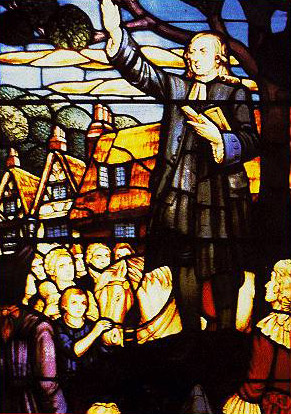- Anglican in worship
- Wesleyan in theology
- Orthodox* in teaching
- Evangelical in mission
- Ecumenical in thought
Epworth Chapel on the Green places itself in full communion with, and is part of, the Christian church and the Christian tradition which the Holy Spirit has inspired and activated since the church was born at the first Pentecost and as enunciated in the Nicene and Apostles’ Creeds.
Although Epworth Chapel on the Green is in communion with the entire Christian Church, Epworth’s emphases within the Christian Church are the following:

A Church in the Wesleyan Tradition
To be a Christian church which is theologically and substantively in accord with the Wesleyan tradition which derives from the Wesleyan revival of the eighteenth century in Great Britain and the Anglican priest John Wesley (1703-1791), and, therefore, to proclaim that Jesus Christ, by his grace received by believers through faith, offers to restore the image of God in them, to enable them to be freed from bondage to sin in this life;
Christian Worship
To conduct, encourage and teach graceful Christian worship which centers upon the Word of God and the Christian sacraments, in the Wesleyan Anglican liturgical tradition;
Christian Witness
To conduct, encourage and teach pre-evangelism and evangelism which convince the mind and prompt conversion and commitment of heart and life to Jesus Christ;
Christian Education
To initiate and conduct educational programs in accord with Christian truth, as understood in accord with, first, the Holy Scriptures; second, the tradition of the Christian church; third, objective reason; and fourth, the corporate experience of Christian believers;
Christian Service
To serve those who are in danger, necessity, trouble, sorrow, need or any other adversity; and
Christian Unity
To conduct, encourage and promote actions which lead to greater unity, understanding and communion among orthodox* Christian churches and denominations.
*Orthodox – In accord with the generally accepted creeds of the Christian Church, and in accord with the ethical and moral principles historically understood as taught by Scripture and the Church.
